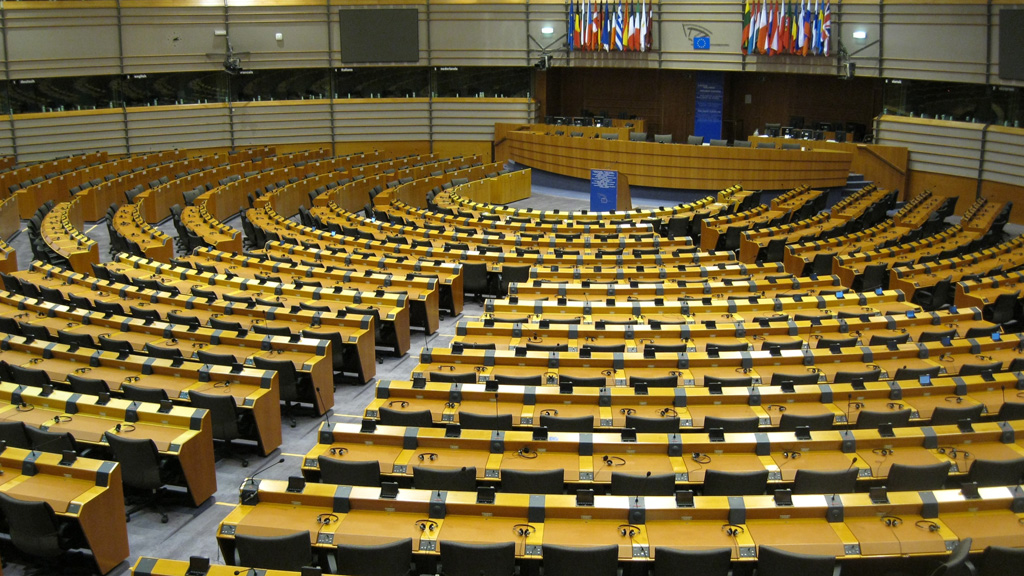European parliament elections: the key questions
Parties are campaigning for the European elections – but how much do we really know about what goes on in Brussels and the European parliament?

The European elections of 22-25 May 2014 give voters the chance to influence the future political course of the European Union when they choose members of the European parliament (MEPs) to represent their interests for the next five years.
How many MEPs will be elected?
There are 751 seats up for grabs in the European elections. These MEPs will represent over 500 million citizens in 28 member states. The seats are allocated among the various states, by the EU treaties, on the basis of “degressive proportionality”, meaning countries with larger populations have more seats than smaller ones.
Why are these elections different?
These are the first elections since the Lisbon Treaty of 2009 which gave the European parliament a number of important new powers.
For the first time, when the EU member states nominate the next president of the European Commission to succeed José Manuel Barroso in autumn 2014, the new parliament must endorse this candidate: it “elects” the commission president. This means voters now have a clear say in who takes over at the helm of EU government.
What is the parliament’s role?
The parliament has powers of scrutiny or oversight over the other EU institutions: it monitors how they work and how they spend the taxpayer’s money.
What powers does it have?
MEPs are the EU’s lawmakers: without their input and approval, most EU laws cannot come into being. With the Lisbon Treaty, parliament gained real power over the important policy areas – notably agriculture and civil liberties – in which it had previously only had a consultative role.

The main types of legislative power are as follows:
Legislative powers
Ordinary legislative procedure: also known as “co-decision”, this is the main EU legislative procedure, used to draft and adopt nearly all European laws. It gives parliament the power to accept, reject or amend draft legislation on the single market, environment, consumer protection, civil liberties, agriculture, transport, research and other areas.
Consultation: on some types of legislation (eg tax, competition, new eurozone members) parliament gives only an advisory opinion. However, the number of policy areas governed by this procedure has shrunk considerably, with most legislation now coming under co-decision.
Consent: if the EU is planning to take in new member states or conclude agreements with non-EU countries, parliament’s seal of approval is needed.
Right of initiative: parliament can ask the commission to propose new legislation and often does so after examining the commission’s annual work programme.
Budgetary powers
The European Union’s long-term spending budget has to be approved by national governments and MEPs, then each year the two sides decide together how the annual budget will be spent. Policies such as agriculture, regional development, energy, transport, the environment, development aid and scientific research all receive EU funding.
Democratic control and supervisory powers
A basic function of any parliament is the scrutiny or oversight of other branches of power, to ensure democratic accountability.
Parliamentary scrutiny of the European Central Bank: to ensure the accountability of European monetary policy, the president of the European Central Bank reports to the EP economics committee every three months and also presents the bank’s annual report to parliament. In its new capacity as the EU bank supervisor, the ECB will be subject to strong parliamentary oversight by MEPs, who will also be empowered to approve the top echelons of the supervisory body.
Parliamentary inquiries: parliament has the power to set up a temporary committee, either to investigate an issue of public interest (a recent case was the committee on organised crime, corruption and money-laundering) or to look into alleged breaches or maladministration of community law.
Foreign policy and human rights
The high representative for the EU’s common foreign and security policy (CFSP) is accountable to parliament, which has a right to be informed and consulted about the policy and can also use its budgetary powers to shape its scale and scope.
Parliament’s consent is needed for any enlargement of the EU and for the conclusion of trade and other international agreements with non-EU states. MEPs also devote considerable energy to human rights issues and the promotion of democratic values around the world, the award of the Sakharov prize for freedom of thought being the annual highlight of parliament’s work in this area.
Petitions
The EP takes the lead in promoting transparency, openness and public access in Brussels. Every European citizen has the right to petition MEPs about environmental problems, disputes with customs authorities, transfers of pension rights and other matters, provided they fall within the European Union’s remit.
-
Latest news
-
FactCheck: the Angela Rayner house row explained

-
Police try to shut down right-wing event as Nigel Farage speaks3m

-
‘Many things Netanyahu has done I disagree with, but I’m not giving up on Israel’, says top-ranking Democrat4m

-
Could US House be about to vote on Israel, Ukraine aid bill?2m

-
Number of people out of work due to long-term sickness at record high3m

-




